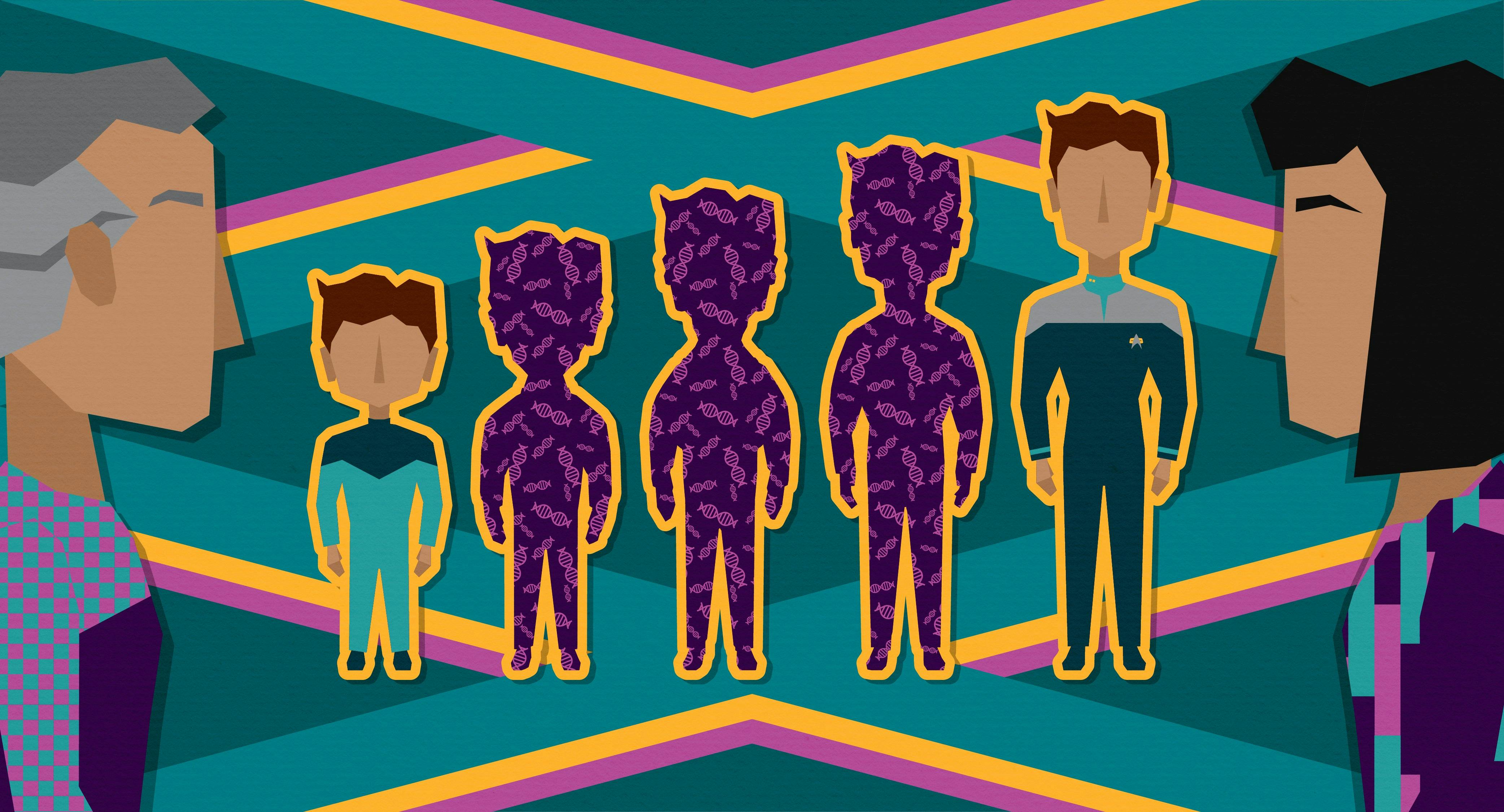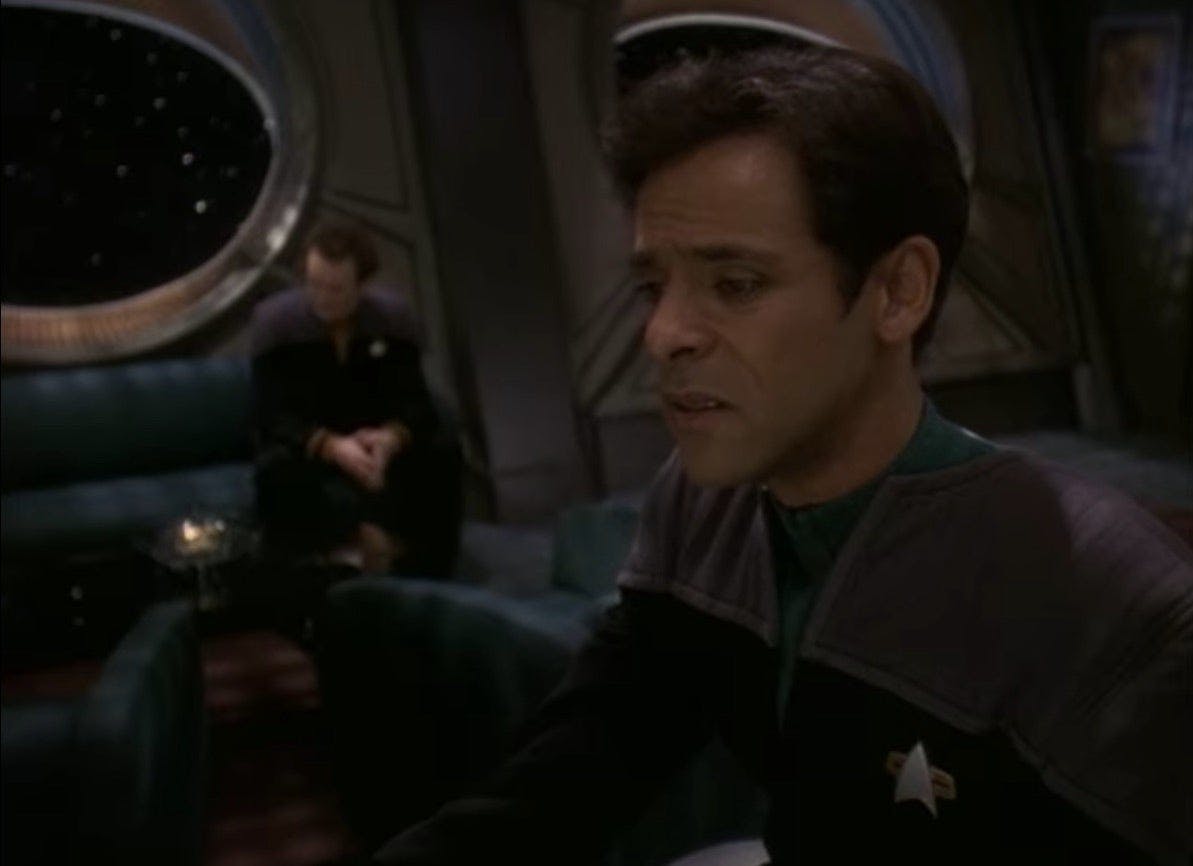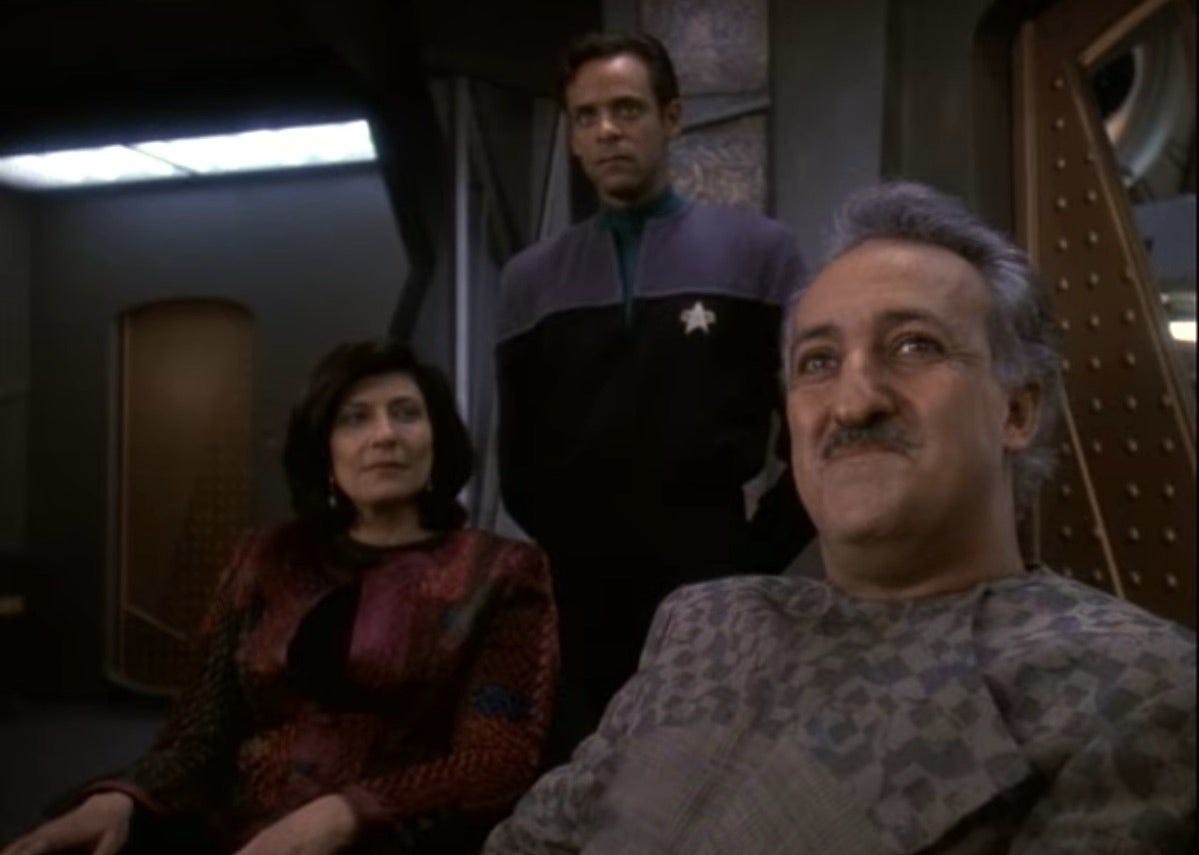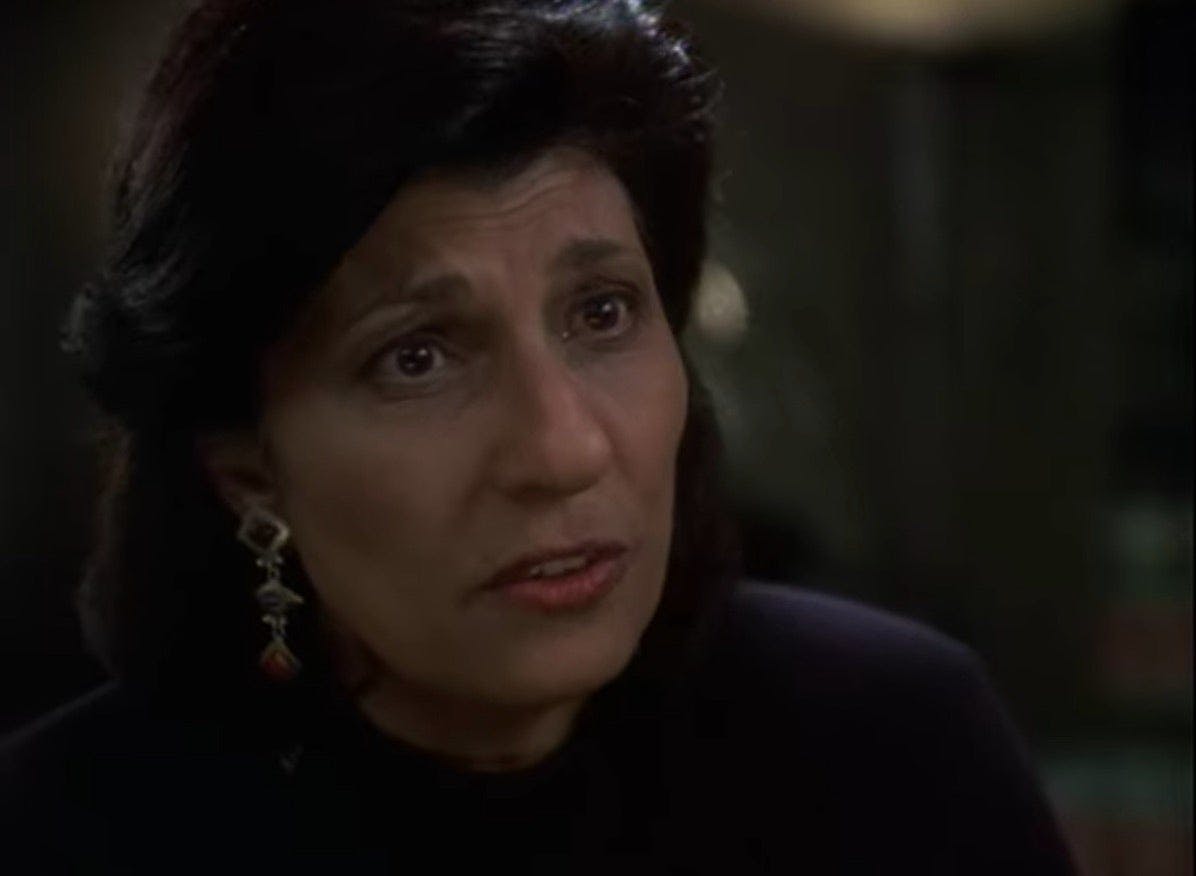Published May 22, 2022
Designing the ‘Right’ Baby for All the Wrong Reasons
Today, we're exploring the ethical complications of human gene augmentation as seen in the classic episode 'Dr. Bashir, I Presume.'

StarTrek.com
Gene editing has recently been on the frontlines of our worldwide fight against Covid-19. Although the current vaccines cannot alter your DNA, CRISPR-based DNA-vaccine enhancers are in development and gene therapy tools have been used to create rapid diagnostic Covid tests. Gene editing startups are quickly emerging as the new biotech frontier and companies like Pfizer are heavily investing in these technologies. Although their potential to cure diseases is immense; these new advancements also bring up ethical considerations regarding their potential use for human augmentation. Other pieces have explored the boundless merits and pitfalls of designer babies; but what is often ignored are the racial, cultural, and classist pressures of using such a technology.
Despite being written in the late 1990s, the DS9 episode “Doctor Bashir, I Presume?” is more relevant than ever today. It deftly explores not only the personal ethical dilemma of genetic augmentation, but also a parents’ natural compulsion to give their children what they perceive to be every advantage available. Culturally, Julian’s family are shown to be of mixed Middle Eastern descent. His father Richard is played by Brian George who is Israeli/British, his mother Amsha is portrayed by Fadwa El Guindi who is Egyptian-American, and Alexander Siddig himself is Sudanese/British. Though parenting is by no means a cultural monolith, the episode does underscore the types of societal pressures he faces as the family’s only male child. The expectation to succeed is enormous. When he recalls falling behind in the first grade, even as a child, his family’s distress is palpable to him.

StarTrek.com
Faced with the dilemma of an academically struggling child, his parents decided to have him genetically altered at the age of six, instead of accepting his shortcomings or redirecting his potential. Now, to be clear, the educational system of the Star Trek universe is far more advanced than ours as illustrated in the TNG episode “When the Bough Breaks” where a child no more than seven laments that he hates studying calculus. Therefore; Julian was probably just as “simple-minded” as your current 21st Century high schooler. We may be unable to master calculus in the second grade but are still capable of living a life of personal fulfillment and happiness.
The episode also reveals that it was upon his parent’s insistence that Julian went into medicine. For many families, having a child who is a doctor is a point of great renown. This may imply that when he was put through his genetic procedure, his parents had a specific plan for a medical career and insisted he follow that predetermined path. His father tells Captain Sisko that they knew Julian was “destined for greatness,” an ironic statement since they were the ones to rewrite his destiny at every turn.
Additionally, their son’s enhancement was a way for the Bashir family to elevate their social standing. Right from their initial introductions on DS9, his father Richard’s cockney working class accent stands in stark contrast to Julian’s much more posh dialect. His father also clearly has a great deal of conceit telling the Captain how busy his schedule has been and embellishing his accomplishments as a 'landscape architect’. Later at dinner Julian even points out that his father was a third-class steward who was fired after six months, not a shuttle runner as he claimed. This is implied to be a pattern of behavior for Richard in a long string of failures. Although he seems to care a great deal about his own legacy, he has been unable to make his personal mark on the universe.

StarTrek.com
The truth of the matter is that the only successful legacy that Richard has is Julian. In fact, this entire episode is built around creating a long-term medical hologram of Julian’s likeness which would be the sort of lasting monument to succeeding generations his father dreams of creating. It’s also worth noting that there is a great irony in Julian being the model for the perfect artificial intelligence doctor but is in trouble for being the perfect artificially intelligent doctor.
There are also racial implications tied to the decision of genetically altering your children. In addition to his intelligence, coordination, stamina, vision, and reflexes, Julian also had his weight and height modified. The concept of aesthetic alterations through gene re-sequencing was also explored in the Voyager episode “Lineage” when B’Elanna tried to remove her unborn daughter’s Klingon facial ridges. Even with the limited technology we have today, issues of colorism are rampant with products promoting skin-whitening, operations to change eye color, and even ethnic plastic surgery — procedures specifically for minorities. Given the option to make these changes on a biological level there’s little doubt that we’d be overrun with repetitive versions of the same type of beauty, devoid of the uniqueness or idiosyncrasies that amount to genuine allure.
Overall, Julian’s parents actions have less to do with their opinion of their child and more to do with their opinion of themselves. A deep-seated insecurity about being “less than” which echoes eugenic and racist ideologies that reverberate throughout society. The constant shame that Julian feels about his enhancement, which colors his every accomplishment and undermines every accolade, parallels his parents' embarrassment at their own perceived shortcomings. Julian’s mother says as much in her impassioned speech when trying to explain that their intentions behind his modifications came from a desire to protect their son

StarTrek.com
For the Bashirs' they gave their child a gift by removing the burden of their own defects.
Even the ultimate decision made by Starfleet at the end of the episode to allow Julian to retain his commission and punish his father Richard instead reinforces the idea that the good doctor’s contributions are too valuable to relinquish while his father’s incarceration would be no great loss to society. The admiral emphasizes that the bans placed by the Federation on gene enhancement are to prevent the creation of genetically engineered tyrants like Khan Noonien Singh. However, his actions indicate that Starfleet has no qualms about benefiting from the talents of such individuals.
This episode succinctly demonstrates that when gene-editing becomes possible the temptation for parents who want the best for their children would be too great to ignore. The prejudices built into our communities apply immense pressure from numerous angles to do so and then justify those actions as a noble act. In reality, these decisions have the potential to permanently subvert a person's individuality, heritage, and identity.
Zoe Malik (she/her) is a lifelong Star Trek fan and writer based in New York. She is currently the News Producer at Full Frontal with Samantha Bee and occasional producer/writer for YouTube channels including TheTryGuys. Before pursuing her passion for writing she was the Science Researcher Coordinator at NYU Langone Medical Center.

